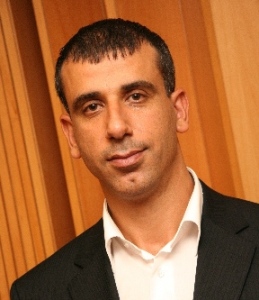 A
new Charles Sturt University (CSU) report has found Muslims in Sydney experience
high rates of racism but also report a strong sense of belonging to Australia.
A
new Charles Sturt University (CSU) report has found Muslims in Sydney experience
high rates of racism but also report a strong sense of belonging to Australia.
The study was commissioned by CSU, Western Sydney University, and the Islamic Sciences and Research Academy Australia to investigate the experiences and perceptions of ordinary Muslims in Sydney. The report comes on the eve of the 2nd Australasian Conference on Islam in Sydney today and tomorrow.
Co-investigator Associate Professor Mehmet Ozalp (pictured) from the CSU Centre for Islamic Studies and Civilisation said the study comprised a mix of face-to-face interviews with Muslims at religious events (345 respondents), as well as a random sample of phone interviews with Muslim households (240 respondents). Slightly more women than men participated (56 per cent to 44 per cent), and half the respondents were aged under 35 years old (49 per cent).
"The study finds that Muslims experience a high level of racism and there is visible Islamophobia in Australia," Professor Mehmet Ozalp said. "However, it is not universal across society, and there is no conclusive evidence for widespread alienation among Australian Muslims.
"The report finds that the primary concerns of Australian Muslims are education and employment as with the rest of the society, and there is a very strong sense of belonging among the Australian Muslims to Australia. They are comfortable in identifying themselves as Australian and Muslim.
"Importantly, higher levels of religiosity were positively associated with stronger national belonging and a sense of Muslim integration."
Key findings of the report include:
- Almost two-thirds of the respondents (57 per cent) had experienced racism. This level of discrimination and hate-talk is three times the rate of all other Australians (on average).
- Ninety-seven per cent agreed that it is a good thing for a society to be made up of people from different cultures, compared to the average of all Australians of 87 per cent.
- A large majority (85.8 per cent) of the telephone respondents felt that relations between Muslims and non-Muslims in Australia are friendly.
- Education was the clear forerunner for issues of concern for Sydney Muslims, with a lack of concern with international affairs (2.9 per cent ranked it as a high priority). This reflects the distance between overseas conflicts and the 'everyday' lives of Australian Muslims.
- The majority of Australian Muslims in this study not only identified themselves as Australian but also felt a sense of belonging to Australia. An even larger substantial majority indicated that it was important for their children to get fully accepted as Australians (90 per cent).
- Two-thirds indicated that they frequently mix with non-Muslims in their social lives, challenging the assumption that Muslims self-segregate.
"The fact that Muslims feel Islam is compatible with Australian norms and they support values of diversity and multiculturalism while they experience high levels of racism, shows that Muslims are not at odds with Australia and that they are resilient in dealing with Islamophobia and racism," Professor Ozalp said.
"While this should not reduce the importance of dealing with Islamophobia, it gives us hope that both Muslims and the wider society has a capacity to deal with it effectively."





Social
Explore the world of social